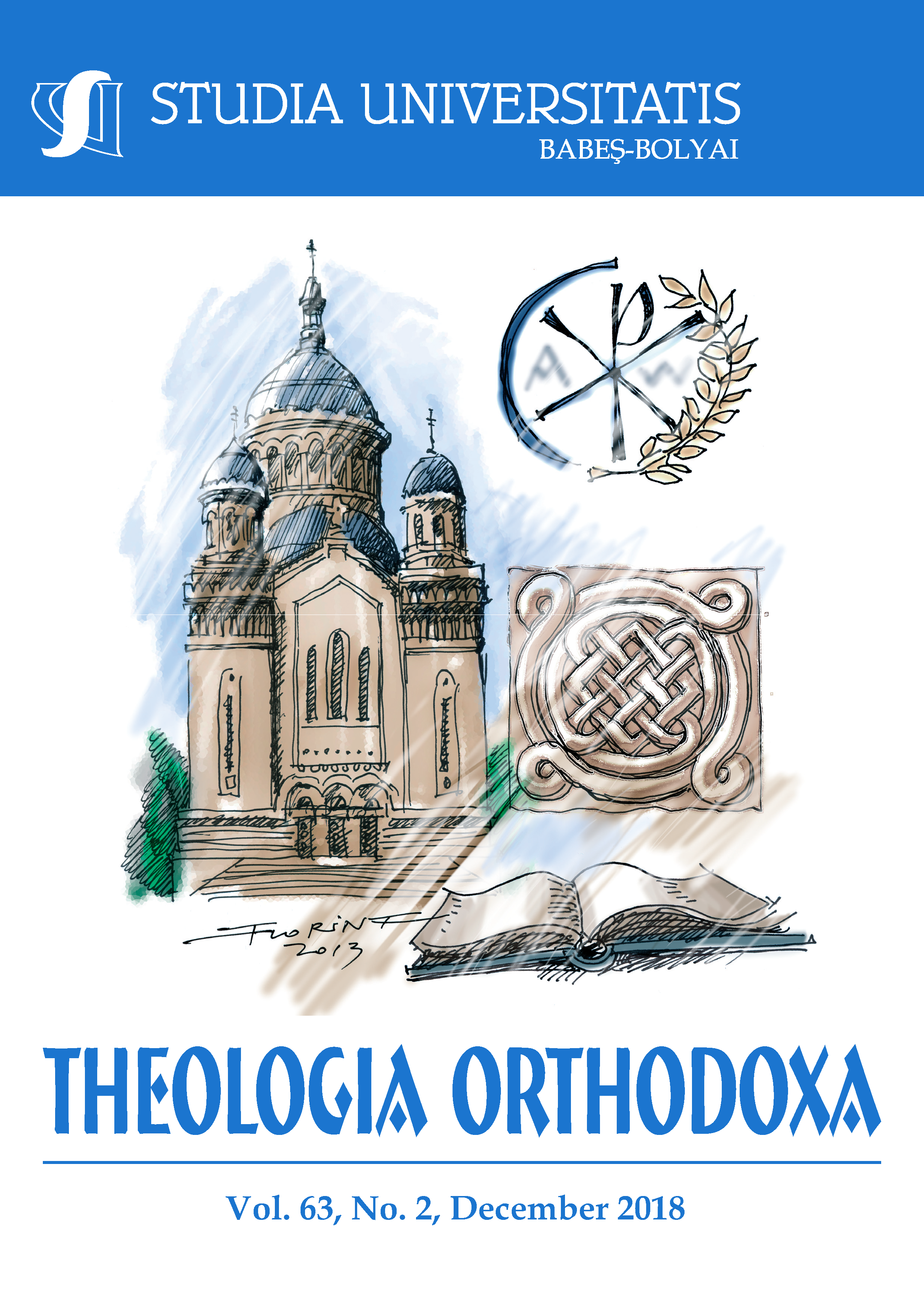HOW DOES THE TRUTH APPEAR? FROM PHENOMENOLOGICAL REDUCTION TO THEOLOGICAL COUNTER-REDUCTION
DOI:
https://doi.org/10.24193/subbto.2018.2.09Keywords:
Christ, Truth, transcendental reduction, phenomenological reduction, eidetic reduction, reduction to givenness, theological counter-reduction, faith, grace, God, transcendence, Edmund Husserl, Jean-Luc MarionAbstract
Starting with Husserl’s phenomenology and advancing to Jean-Luc Marion’s and Jean-Yves Lacoste’s phenomenology and to the revealed theology, this paper aims to answer the question: How does the Truth appear? Husserl’s phenomenological reduction made the appearance of God, who remained in an absolute transcendence, impossible; but John’s Gospel states that Christ is the Truth. We accept both of these opinions and offer the following answers: the religious phenomena, which have to do with a religious life and knowledge, could appear after one ignores or weakens the Husserlian epoché; God could appear if the phenomenological reduction became a reduction to givenness; the religious phenomena could appear after a theological counter-reduction, which separated itself from phenomenological rigor and belonged to theology.
References
Bello, Angela Ales. The divine in Husserl and other explorations. Dordrecht, The Netherlands; London: Springer, 2009.
Heidegger, Martin. Ființă și timp [Being and Time]. Translated by Gabriel Liiceanu, and Cătălin Cioabă. București: Humanitas, 2002.
Henry, Michel. Eu sunt Adevărul. Pentru o filozofie a creștinismului [I am the Truth: Toward a Philosophy of Christianity]. Translated by Ioan I. Ică jr. Sibiu: Deisis, 2000.
Husserl, Edmund. Ideas Pertaining to a Pure Phenomenology and to a Phenomenological Philosophy. First Book: General Introduction to a Pure Phenomenology. Translated by F. Kersten. Dordrecht: Kluwer, 1983.
———. Meditații carteziene [Cartesian Meditations]. Translated by Aurelian Crăiuțu. București: Humanitas, 1994.
———. Logical Investigations. Translated by J. N. Findlay. Vol. 1, Prolegomena to pure logic. London: Routledge, 2001.
Kierkegaard, Søren. Fărâme filozofice [Philosophical Fragments]. Translated by Adrian Arsinevici. Timișoara: Amarcord, 1999.
Lacoste, Jean-Yves. Experiență și Absolut. Pentru o fenomenologie liturgică a umanității omului [Experience and the Absolute. Disputed Questions on the Humanity of Man]. Translated by Maria Cornelia Ică jr. Sibiu: Deisis, 2001.
———. Timpul – o fenomenologie teologică [Time: A Theological Phenomenology]. Translated by Maria Cornelia Ică jr. Sibiu: Deisis, 2005.
———. Fenomenalitatea lui Dumnezeu [Phenomenality of God]. Translated by Maria-Cornelia Ică jr. Sibiu: Deisis, 2011.
Mall, R. A. “The God of phenomenology in comparative contrast to that of philosophy and theology.” Husserl Studies 8, no. 1 (1991): 1–15.
Marion, Jean-Luc. În plus. Studii asupra fenomenelor saturate [In Excess: Studies of Saturated Phenomena]. Translated by Ionuț Biliuță. Sibiu: Deisis, 2003.
Taminiaux, Jacques. The Metamorphoses of Phenomenological Reduction. Milwaukee: Marquette University Press, 2004.
Turcan, Nicolae. Apologia după sfârșitul metafizicii. Teologie și fenomenologie la Jean-Luc Marion [Apology after the End of Metaphysics: Theology and Phenomenology in Jean-Luc Marion]. București: Eikon, 2016.
———. “Fenomenologia fără epoché: Problema religiei la Husserl.” [Phenomenology without epoché: The Problem of Religion in Husserl] In Simetriile înțelepciunii. Studii de filosofie și teologie [Symmetries of Wisdom: Studies of Philosophy and Theology], edited by Alin Tat, and Nicolae Turcan, 35–56. București: Eikon, 2017.
Published
How to Cite
Issue
Section
License
Copyright (c) 2018 Studia Universitatis Babeș-Bolyai Theologia Orthodoxa

This work is licensed under a Creative Commons Attribution-NonCommercial-NoDerivatives 4.0 International License.





 ISSN (print): 1224-0869, ISSN (online): 2065-9474, ISSN-L: 2065-9474
ISSN (print): 1224-0869, ISSN (online): 2065-9474, ISSN-L: 2065-9474